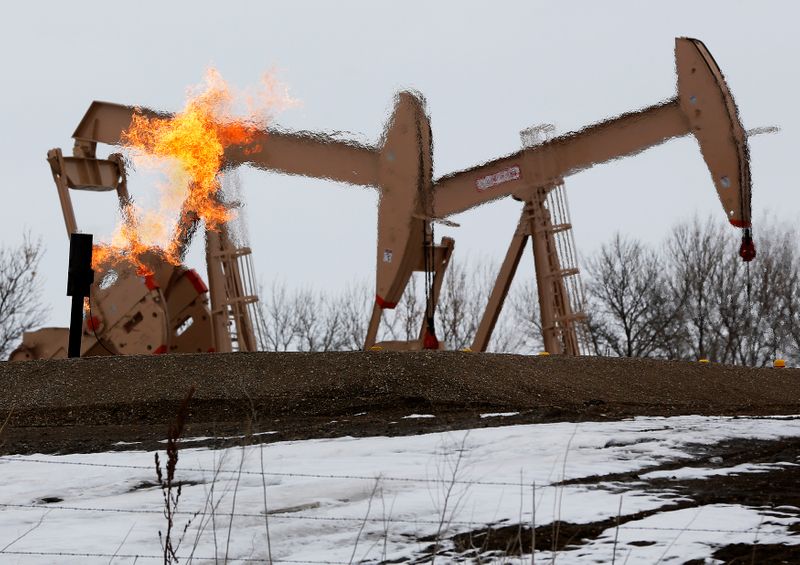(Reuters) - Global gas flaring increased to 150 billion cubic meters (bcm) in 2019, the highest level in more than a decade, primarily due to increases in the United States, Venezuela and Russia, the World Bank said on Tuesday.
Gas flaring, the burning of natural gas associated with oil extraction, in fragile or conflict-affected countries climbed from 2018 to 2019, in Syria by 35% and in Venezuela by 16%, the World Bank report said.
Flaring was up 23% in the United Sates, and 9% in Russia.
The top four gas flaring countries - Russia, Iraq, the United States, and Iran - continue to account for 45% of all global gas flaring, for three years running (2017-2019), the World Bank said.
However, gas flaring fell by 10% in the first quarter of 2020, with declines across most of the top 30 gas flaring countries, it added.
"The current COVID-19 pandemic and crisis brings additional challenges, with sustainability and climate concerns potentially sidelined," said Christopher Sheldon, practice manager in the Energy & Extractives Global Practice, World Bank.
